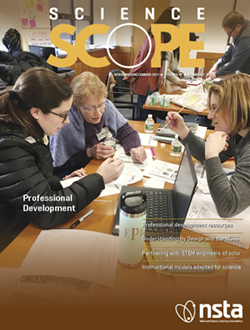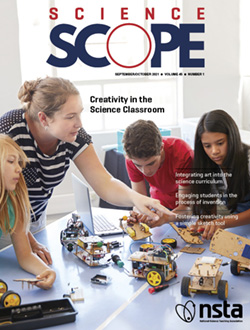Transforming Science Learning: Part 2: Leveraging Assets to Build on Student Experiences, September 22, 2021
Join us on Wednesday, September 22, 2021, from 7:00 PM to 8:30 PM ET for Part 2 of this two-part Transforming Science Learning web seminar series.
In part one of this two-part series focusing on an asset approach to learning, we explored strategies for using student questions, experiences, and diverse backgrounds related to phenomena and problems to drive teaching and learning. In part two, we will focus on the supports teachers can use to make authentic connections to the lives of their students.
Join us on Wednesday, September 22, 2021, from 7:00 PM to 8:30 PM ET for Part 2 of this two-part Transforming Science Learning web seminar series.
In part one of this two-part series focusing on an asset approach to learning, we explored strategies for using student questions, experiences, and diverse backgrounds related to phenomena and problems to drive teaching and learning. In part two, we will focus on the supports teachers can use to make authentic connections to the lives of their students.
Join us on Wednesday, September 22, 2021, from 7:00 PM to 8:30 PM ET for Part 2 of this two-part Transforming Science Learning web seminar series.
In part one of this two-part series focusing on an asset approach to learning, we explored strategies for using student questions, experiences, and diverse backgrounds related to phenomena and problems to drive teaching and learning. In part two, we will focus on the supports teachers can use to make authentic connections to the lives of their students.
Join us on Wednesday, September 22, 2021, from 7:00 PM to 8:30 PM ET for Part 2 of this two-part Transforming Science Learning web seminar series.
In part one of this two-part series focusing on an asset approach to learning, we explored strategies for using student questions, experiences, and diverse backgrounds related to phenomena and problems to drive teaching and learning. In part two, we will focus on the supports teachers can use to make authentic connections to the lives of their students.
Join us on Wednesday, September 22, 2021, from 7:00 PM to 8:30 PM ET for Part 2 of this two-part Transforming Science Learning web seminar series.
In part one of this two-part series focusing on an asset approach to learning, we explored strategies for using student questions, experiences, and diverse backgrounds related to phenomena and problems to drive teaching and learning. In part two, we will focus on the supports teachers can use to make authentic connections to the lives of their students.






